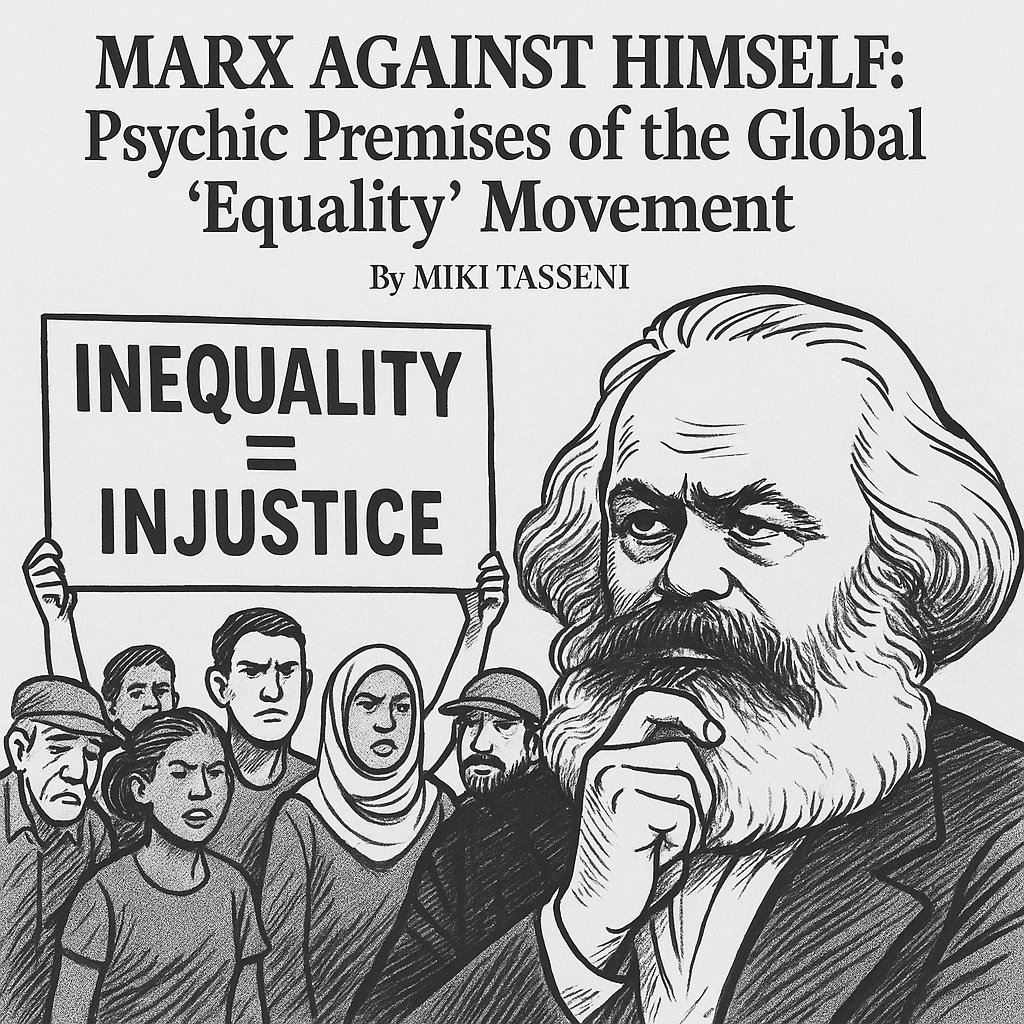
By Miki Tasseni
It has become routine to hear that the greatest threat to the global economy today is the widening gap between the rich and the poor—a phenomenon particularly visible in Western countries. Social unrest in Greece and elsewhere reveals how profound this inequality feels. But often overlooked is the psychic and cultural element underpinning poverty—groups or communities that choose marginalization, consciously or subconsciously, over assimilation.
A telling example comes from Australia, where recent decades have seen solemn governmental apologies for the removal of Aboriginal children from their families throughout the 20th century. The policy was meant to shield them from environments marked by alcoholism and economic disengagement, yet later deemed racist. The Roma in Europe mirror this pattern—nomadic, resisting integration, and often choosing casual, transient work over structured employment.
In the Americas, especially in Amazonian regions, some indigenous populations still prefer forest life to urban labor, their defense of cultural autonomy equated with biodiversity conservation. Globally, however, this tension raises difficult questions: Is poverty always systemic—or sometimes psychic? Can marginalization be internalized and transmitted culturally?
Historical analogies abound. In colonial Latin America, native labor often proved unreliable, prompting the importation of African slaves. In East Africa, railway construction relied not on local populations, but on Indian indentured labor, and later on Chinese workers for projects like the TAZARA Railway. Again and again, local labor lacked the discipline or motivation required for large-scale modern infrastructure.
These patterns reveal something crucial: poverty is not solely material—it is also attitudinal. It is shaped by inherited mindsets, routines, and structures of meaning. This challenges contemporary development orthodoxy, which frames inequality strictly in terms of systemic exclusion or exploitative global capitalism. But what if part of the inequality equation lies in collective disposition?
In today’s global economy, even as inequality deepens, access to once-luxury goods has broadened. Smartphones, once status symbols, are now ubiquitous—even in rural communities. Yet paradoxically, in Greece, some parents abandoned their children at school with notes saying they couldn’t afford to feed them—despite access to social security. The issue is no longer just income—it is value systems, priorities, and emotional resilience.
Such examples expose the ethical vacuum behind much of the contemporary inequality discourse. The outrage about the rich-poor divide often comes from quarters where productivity is low, dependency is high, and responsibility is evaded. Abandoning a child in poverty reflects not just desperation, but a profound moral collapse.
So where does Karl Marx fit into this narrative?
Interestingly, Marx can be cited by both camps. In The Communist Manifesto, he writes that “at the pain of extinction, the native accepts the ways of the foreigner.” This rings true in the case of the Aborigines or any marginalized group facing societal collapse. But Marx’s historical materialism did not fully grasp why some groups do not choose the path of material advancement—even under pressure.
This presents a contradiction: Marx insisted that technological progress and capitalist discipline would shape all societies, but he underestimated the enduring power of non-economic motivations—culture, pride, spiritual systems, communal identities.
Utopian socialists like Robert Owen tried experiments in alternative social conditioning, but little was conclusive. The real shift often came when settler colonial governments restructured land ownership, pushing indigenous communities into urban proletariat roles, often with disastrous psychological consequences.
In many cases, it is not until land reform enables people to become petty owners—with modest plots, access to water, and tradable property—that integration into the modern economy becomes feasible. It is easier for people to adapt as producers or micro-entrepreneurs than as wage-earning laborers. This is one of Marx’s overlooked blind spots.
At the same time, Marx claimed that the replacement of labor by machinery would impoverish workers and spark revolution. But the evidence today is mixed. While automation has indeed displaced many, commodities have never been cheaper. A global poor person today often owns a mobile phone and can access basic communication and media tools unimaginable just 25 years ago.
The core issue now is not price, but prioritization—a problem of expenditure structures and personal choices. Some still cling to unsustainable lifestyles—holding onto cars while forgoing food, clinging to alcohol while abandoning families.
Meanwhile, enterprising migrant groups—like Somali traders in South Africa—demonstrate what happens when discipline, thrift, and work ethic drive integration. They work long hours, share capital, and compete fiercely on price, becoming role models of upward mobility. Contrast this with groups who demand protection from market forces, clinging to ancestral ways while resisting adaptation.
When land speculation, agribusiness, or infrastructure development enters such spaces—like Maasai grazing lands—conflict erupts. These disruptions require marginalized groups to labor for survival, sparking mass protests and international outcry. Yet the underlying issue is often resistance to modern economic structures.
The global “equality” movement, then, may be missing the mark. If it equates equality with protection from market realities, it will perpetuate dependence, not liberation. Real emancipation lies in equipping people with agency, not excuses.
Marx, if he were alive today, might find himself at odds with his own followers—caught between his hope for proletarian empowerment and his mistaken belief that machines alone would impoverish the masses. The truth lies somewhere else: inequality today is a complex fusion of economic, cultural, and psychological factors. Addressing it requires not only redistribution, but also reorientation.
